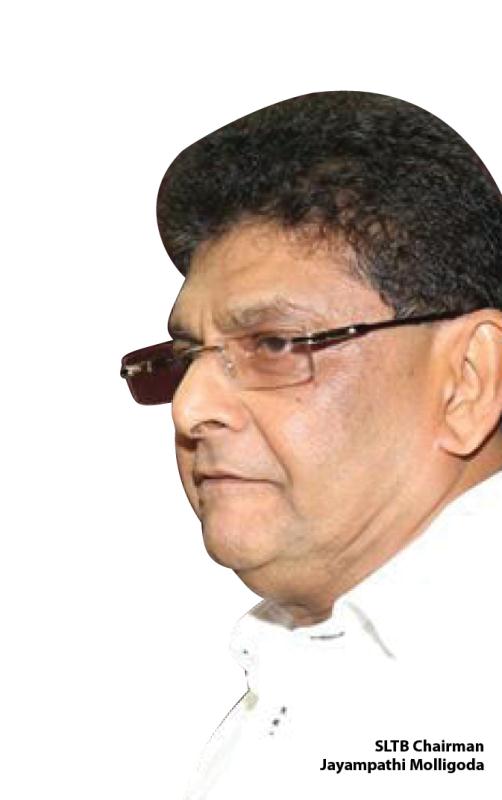By Charindra Chandrasena
The Sri Lanka Tea Board (SLTB) has devised a plan to promote Ceylon black tea globally as an authentic premium wellness drink that could prevent Covid-19 by improving the immune system.

This strategy has been formulated by SLTB Chairman Jayampathi Molligoda to boost the popularity of Ceylon Tea in international markets and bring in foreign exchange which is desperately needed by Sri Lanka’s coronavirus-hit economy.
According to Molligoda, black tea is abundantly enriched with theaflavin, an antioxidant polyphenol that has numerous biological qualities scientifically proven to develop the immunity system, even against coronaviruses such as Covid-19.
“Theaflavin even helps to combat Covid-19 by improving immunity. But of course, not in the people who have already caught the virus,” Molligoda alleged.
According to him, Ceylon Tea is grown in high-conditional areas where metallic and chemical pesticides are not used unnecessarily in growing tea plants and the 5.8 pH level and soil texture of the cultivation land is ideally suited for high theaflavin generation. The high percentage of theaflavin leads to improved immune systems, he stated.
Considering the wellness behind Ceylon black tea and people’s growing awareness of the biological qualities of theaflavin, the SLTB is planning to conduct promotional campaigns soon, through social media platforms and international and local print and electronic media channels.
“We are going for a campaign promoting tea as a wellness range. Compared to other tea-producing countries’ products, this may help strengthen the immune systems of tea drinkers to fight Covid-19,” he noted.
Molligoda stated that Germany, one of Sri Lanka’s biggest black tea markets, is being looked at for this campaign and the SLTB is planning to export black tea to Egypt, Pakistan, and the UK at the moment along with other products.
Furthermore, he added that at a time where doctors around the world advise people to cut down soft drink and cold beverage consumption, Ceylon Tea is an ideal substitute. He also encouraged people to drink three cups of tea per day.
It is notable that during a meeting with the Chinese Ambassador in Sri Lanka Cheng Xueyuan on 6 February, at the height of the epidemic in China, Sri Lankan President Gotabaya Rajapaksa gifted a consignment of Ceylon black tea to China to fight the epidemic, as a gesture of goodwill.
Molligoda added that the presence and biological activities of theaflavin has been proven in both international and local research papers.
“Scientific research papers were already reviewed by the Tea Research Institute (of Sri Lanka) (TRI) and the SLTB Lab Director. There are a number of other scientific papers (that were released), especially in 2002, after the outbreak of SARS (severe acute respiratory syndrome),” Molligoda noted.
The TRI has released a scientific paper under the theme: “Antiviral properties of tea: Black tea may become the unique brew of choice with no side effects to fight against coronavirus?” (accessible on their website).
The low incidence of infected patients in Sri Lanka due, allegedly, to habitually consuming three to four cups of Ceylon black tea and studies ongoing globally in search of therapeutic options to recognise the “antiviral” agents of black tea which could treat patients affected by Covid-19 and theaflavins could potentially inhibit a critical SARS-CoV-2 enzyme, and thereby, theoretically inhibit Covid-19.
However, the SLTB noted that black tea is neither a medically proven prophylaxis nor a treatment against Covid-19, but that it is worth conducting further research to investigate the possible antiviral benefits of theaflavins in black tea in the fight against Covid-19.
“However, clinical trials need to be initiated prior to claiming benefits against Covid-19 in humans. It is premature to make concrete claims until in vivo experiments or research and development on living cells are undertaken as per WHO (World Health Organisation) guidelines. Nevertheless, Sri Lankans strongly believe that Ceylon Tea, the miracle black tea beverage, is certainly one of them,” it said in a research paper.
It added that the relevant scientific papers are available with the SLTB for reference.
However, a fact check conducted by AFP in late March has concluded that there is no scientific basis to the claim that any kind of tea could cure or prevent the Covid-19 infection. The fact-check article quotes Sri Lanka Medical Research Institute (MRI) Director Dr. Jayaruwan Bandara as having told AFP that while tea may strengthen immunity, there is “no research” on the benefits of drinking tea for Covid-19 patients.
“While drinking tea can be beneficial for one’s health, it cannot be touted as a preventive measure or a treatment in the case of Covid-19. The only way to minimise infection, as recognised by other international health agencies, is social distancing, following proper hand hygiene, and refraining from touching one’s eyes, mouth, and nose,” he said.
The article goes on to say that Sri Lankan Health Promotion Bureau (HPB) Registrar Dr. Ashan Pathirana and a spokesperson for the National Science Foundation of Sri Lanka had also refuted the claim.
